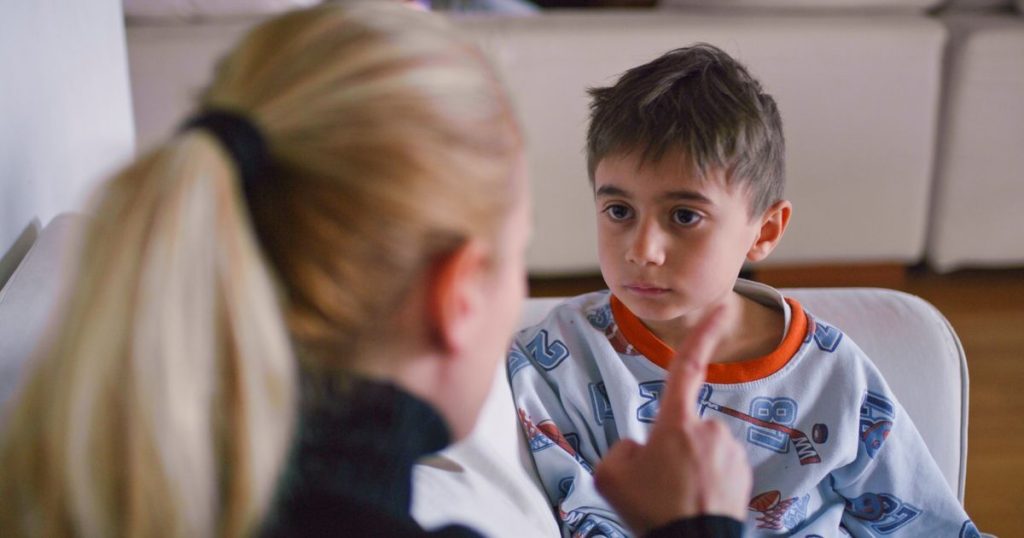The Hidden Messages in Parental Love: Decoding the Impact of "We Love You, but…"
Every child has moments of regrettable behavior—biting, screaming, hitting, or lying—after which they might feel terrible and question their parents’ love. Statements like “Are you mad at me?” or “I shouldn’t be part of this family” are not uncommon, especially from highly emotional and sensitive children. While these declarations can be jarring for parents, a common response is, “We love you, but we don’t love that behavior.” At first glance, this phrase may seem like a positive way to separate love from misbehavior. However, experts warn that this approach can unintentionally send a damaging message: that a parent’s love is conditional. This can leave children feeling insecure and uncertain about their parents’ affection, potentially leading to long-term issues like low self-esteem, anxiety, and trust problems.
Understanding Conditional Love: The Subtle Harm of "But…"
Dr. Stacy Doumas, a child and adolescent psychiatrist, explains that the phrase “We love you, but…” implies that love has exceptions or boundaries. When children hear this, they may internalize the idea that their worthiness of love depends on their behavior. This is particularly harmful during moments of high emotion, when children are most vulnerable and seeking reassurance. Instead of comforting them, parents may inadvertently reinforce feelings of conditional love. Doumas emphasizes that children need to feel unconditional love, especially when they are struggling with emotions or misbehaving. A simple, unqualified “I love you” can go a long way in providing the security and support they need.
Timing Matters: Separating Love and Behavior Conversations
When children act out and express fear about their parents’ love, it’s essential to address their emotions first before discussing their behavior. Timing is crucial because children (and parents) are unlikely to think clearly when emotions are running high. Michele Borba, an educational psychologist, suggests that parents should first validate their child’s feelings and help them calm down before addressing misbehavior. A prepared phrase like, “I love you. I’m here for you. Let’s calm down and talk about this in a few minutes,” can create a safe space for both parties to regulated their emotions. Once everyone is calm, parents can focus on teaching lessons and reinforcing boundaries. This approach ensures that love and behavior are discussed separately, preventing children from conflating the two.
Finding the Teachable Moment: Focusing on Facts and Feelings
Once emotions have cooled down, parents can then focus on the facts of the situation and use it as a teachable moment. This involves clearly stating expectations, explaining why certain behaviors are not acceptable, and discussing consequences. For example, if a child leaves their toys outside and they get ruined in the rain, parents can explain the expectation of putting toys away and the natural consequence of losing something valuable. Doumas advises focusing on the underlying causes of the behavior, such as transitions, mental health needs, or triggers, to guide future strategies. During these conversations, if children express insecurity about their parents’ love, parents can reaffirm their love with a simple, “I love you. I’m here for you,” before returning to the discussion of behavior.
Effective Consequences: Teaching Lessons with Love and Logic
Consequences are a natural part of learning, but they should be logical and respectful rather than punitive. Doumas explains that effective consequences are those that make sense and help children understand the impact of their actions. For instance, if a child forgets to clean up their toys and they get ruined, the consequence might be that they have to save their allowance to buy a new one or go without it. This approach teaches responsibility and problem-solving without shaming or punishing the child. Parents should also take time to reflect on their own reactions and ensure they are addressing the behavior rather than attacking the child’s character. By balancing firmness with empathy, parents can help their children grow without damaging their sense of self-worth.
Building a Strong Foundation: The Power of Positive Parenting
Ultimately, positive parenting is about fostering a loving and supportive relationship outside of moments of misbehavior. Doumas and Borba agree that spending time praising good behavior, celebrating kindness, and rewarding positive actions can have a profound impact on a child’s development. Celebrating moments of generosity or kindness sends a strong message that parents notice and value their child’s best qualities. By focusing on the positive and saving difficult conversations for calm moments, parents can create an environment where children feel safe, loved, and supported. Borba emphasizes that the goal is not just to raise a well-behaved child but to raise a good human being—one who feels secure in their parents’ unconditional love and empowered to make positive choices.















